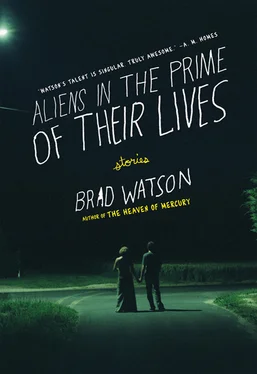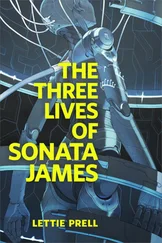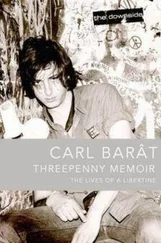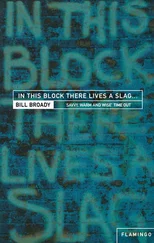The Bodies
The bodies were posed as speakers, lovers, discus throwers, runners awaiting the starter’s gun, as models for artists or medical students, one breast, say, removed of its skin but for the nipple, a penis flayed down one side, scrotum as if it were never there — eyelids severed, noses sheared, abdominal walls peeled away in layers, and hearts, intestines, livers, kidneys there like fruits dried on the vine.
In another room there were glass cases in which millions of blue and red capillaries floated like strange galaxies captured, reduced to the size and shape of human bodies — what worlds operated in there, now?
The man and his son strolled through the exhibit as if through a gallery of art.
The son seemed disinterested, bored. Embarrassed by the sexual organs, at this delicate age of his own development? Or by the other visitors’ intense and open interest? Embarrassed, perhaps, for these people, who were once Chinese, who were once the unnamed and newly dead, who perhaps were prisoners or the inhabitants of a village, caught in the path of war. No one knew or was saying. Even the man felt somehow embarrassed to be alive among them, and he sympathized with his son’s discomfort. He and the boy’s mother had been divorced for only a year, and the man did not know very well just what the boy carried about in his mind and heart.
They came to a woman sliced the length of her body into four standing, parallel slabs, separated only by inches. The boy stood looking fiercely away. He glared at someone in a group that walked past them to another part of the exhibit.
As they left and walked out into the park, the boy said in an angry undertone, Did you see that woman looking at you?
What woman? the man said.
That woman , the boy said. You didn’t see her?
I was looking at the bodies, the man said. Weren’t you?
It was disgusting, the boy said, though he didn’t explain or say what or why.
Intermission
Her scent blossomed in the car like heavenly polecat, like flowers manufactured in a tire plant, something dusky and nostril-stinging, like perfumed coal dust, dead rose blossoms on hot oil-grimed engine blocks. She smacked her Spearmint in something like meditation and I didn’t know if we’d make it to the old theater or not. We drove down the near-empty wide lanes of Twenty-second Avenue, over the bridge, the heavy, sooted freights chugging by underneath, into the heart of town — silent and thrumming like hummingbirds, our hearts. Or maybe it was just me. I turned onto Eighth and pulled up beneath the marquee, the bright light slashing through the windshield, cutting her body in half. She pursed her glossy, strawberry lips, leaned toward me, and took my hand. I was trembling. Ever have a woman kiss the palm of your hand? No, she didn’t. She closed my fingers over the little ball of gum. Toss that out the window for me, baby. I wish she hadn’t looked up right then. Her eyes, between sticky spiked lashes, some kind of deep neon green. Her hair smelled of exotic salts at the roots. Her tongue like a blind, hairless, nursing mammal in my mouth.
The car was rolling, horns blaring, that bending sound going by. I was bent into Mona, I could feel the back of my leg against the wheel, steering somehow, I don’t know where. Folks shouting. It was like church. She was kicking, with those wild pointed shoes, big holes in the headliner. She made sounds like a peacock crying, Aye! Aye! Aye!
I don’t know how far we idled down Eighth. I don’t know how many folks we ran up over the curb. I don’t know how many cops they called out to run down the ’62 Bonneville driving itself down the road. I don’t know, the jailer said one cop called over the radio, Look like it’s being drove by a big hairy ass to me.
I don’t know how long I’ll be in here. I can see all that from the top of the county jail, the long stretch of Eighth Street, west. I can see the flickering sign of the Davis Grill, where I was going to take her to eat. I can see the marquee on the old theater there. I think I can see her sometimes, that plump-legged, kind of pigeon-toed waddle, her nylons going whish-whish, see her actually make it inside the place with some more restrained type of guy. I can see all the way south to Bonita, where her little white house sits on top of the hill. I can see other cars pull in there and, the next morning, leave. I can see the lights go on in the hallway, the kitchen, the bedroom, and out.
Her Tribe
She hadn’t been to the grove since high school, when they used to meet there before home room to smoke dope. Years ago. Before all of that, before everything since.
It was a holiday now, summer vacation. The oaks, sweetgums, and maples, strong-limbed, were in full foliage. She stood in the lower area, where a creek once went through maybe, before the school was there, ages ago, before town even came out this far. When this was the country.
A breeze, cooled in the shade down there, rattled the dense, waxy leaves of the water oaks. She closed her eyes, let her head fall back, felt the breeze on her open neck. She had almost drifted off when she felt the breeze drop even lower in temperature, as if it had passed over water, over the imagined, once-present creek down below, and she opened her eyes in surprise. That’s when she saw them, moving through the higher branches, coming into the grove down near the Vocational Building.
She thought, impossibly — apes. Gorillas. But they were pale, leaner. Muscled, she could tell even from this distance. But leaner. Hairless baboons. She crouched down, put a hand to the damp dead leaves on the ground to steady herself. She couldn’t see faces. Mostly, their sweeping, graceful movement from limb to limb. Through the gaps in between trees, she saw one, three, more make looping leaps from one tree to another. She began to hear noises, like grunts, croaking noises. She heard, as quiet as fingertips wisping over paper, the sound of their hands grasping, swinging on, and releasing the limbs. The slap of the palms grasping another. The faint creak of the limbs with their weight.
Then they were above her, and stopped. The silence in the trees’ canopy like the silence between one beautifully discrete moment and the next. Between two people, when one has just admitted to something awful, and everything is about to change, or already has.
She could see them, perched there, on limbs, in the crooks of larger trees, looking down at her. None of them moved, their eyes on her, their mouths set in something between alarm and anticipation.
Their chests, hairless, concave, muscled. Their hands broad and long-fingered. Their feet, curled over the tree limbs, enormous, the only parts of them apart from their heads on which she could see hair. Their penises seemed very small, but maybe that was just the distance up into the trees. Or maybe they were that way from exertion. That was true, wasn’t it? She tried to remember the way the young boys looked when she swam in the cold creek with them, when she was a girl.
They were clean-shaven. Or perhaps just beardless. The hair on their heads cropped short, like crew cuts, like boys.
But they were unquestionably men.
She saw their wide, thin-lipped mouths begin to move, and a sound like a high-tenor wind through the trees came from them. They were singing something.
She dared not move or make a sound. She would never forgive herself if she spooked them, if they startled and swung away from her, to some other lost place, never to return.
Going Down
Pearl and Frank had just knocked off their third scotches, Pearl punching at the little call button, when the plane began to go down.
Читать дальше












